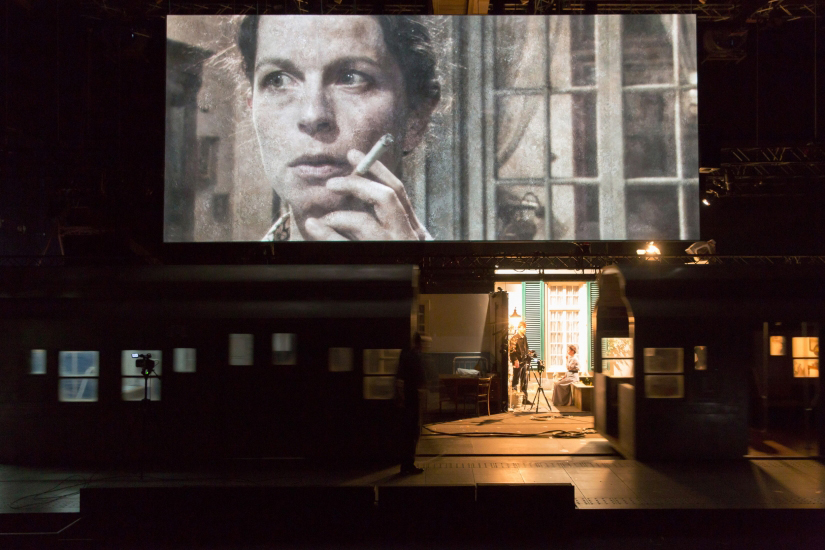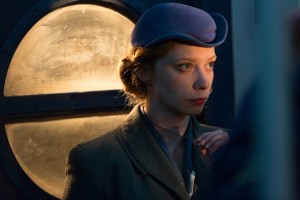The Forbidden Zone at the Barbican

The Barbican’s latest international offering is an ambitious, maximalist extravaganza that, despite being a Berlin production, comes from the imagination of a source closer to home – that of Katie Mitchell, one of the most “polarising” working British directors. Mitchell has relocated to continental Europe as she feels the theatrical establishment in Britain to be too resistant to her bold tinkering with the classics, with Germany offering her an environment in which she feels free to pursue her most radical and most feminist work. And here the audience is reminded at every moment that they are in the presence of a theatrical auteur. Working along with video director Leo Warner, The Forbidden Zone’s modest 70 minute length is bursting at the seams with fancy trickery and gimmickry that seem to test even the vast amount of space and the resources that the mighty Barbican theatre has to offer.
This is not to mock the seriousness of the intention to present untold tales of female marginalisation in the wake of two tumultuous world wars that marked the first half of the 20th century. The author of the play, Duncan Macmillan, has woven together fact and fiction, using American writer Mary Borden’s eponymous collection of autobiographical poetry about her time as a nurse on the front line as a loose umbrella narrative. Joining this is the story of chemist Clara Immerwahr (Ruth Marie Kröger) who, In World War I, bravely attempted to stop the use of chlorine gas by her Jewish husband and fellow chemist Fritz Haber (Felix Römer), who arrogantly resisted her due to his nationalistic beliefs. Another strand of narrative is set decades later in 1940s Chicago with Clara’s German-American granddaughter Claire Haber (a very expressive Jenny König), who also finds herself deeply alienated by the focus in the chemical industry to create weapons rather than cures. Accompanying these storylines are sections of voice-over adapted from texts by feminist icons such as Virginia Woolf, Simone de Beauvoir and Hannah Arendt.
There’s a lot to absorb in a small space of time and the blending of live performance and cinematic techniques such as voice-over, camera angles and close-ups, which sounds exhilarating on paper, ends up being too much of a good thing. There’s a wispy, insubstantial feel, perhaps due to how little actual flesh-and-blood presence there is to engage with on stage, as the actors are almost constantly hidden behind screens and barriers. While it is true that the stagecraft is impressive and superbly engineered there’s a numbness that sets in as the play goes on no matter how impressive a moving train carriage set is. It’s all text and no performance – or rather it is only Mitchell’s directorial performance that is allowed to register: a shame because it robs the material of its import and weight, and instead exists more as a pommel horse for Mitchell’s exhausting theatrical acrobatics.
Edward Till
The Forbidden Zone is at the Barbican Theatre from 26th until 29th May 2016, for further information or to book visit here.
Watch the trailer for The Forbidden Zone here:

























Facebook
Twitter
Instagram
YouTube
RSS